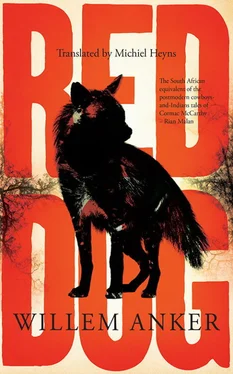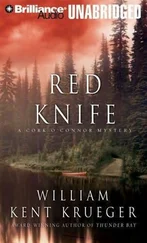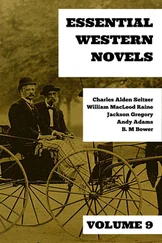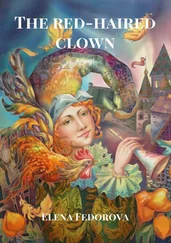She settles herself next to me.
Now you will sit on your arse. So keep your trap shut for a change, then we look to see the end of the bloody road.
No end, I say.
What?
I practise the word with my tongue before I speak. I speak slowly, take my time with every sound until it’s lined up right to climb onto the breath from my lungs.
No end. Never ends. Always another.
Lordgod, Buys.
She slaps my shoulder. We sit peering into the distance: trees, bushes, anthills. The yellow grass.
You’d better not leave me with the children of your lost Caffre women. I’ve walked after you too far. So don’t go and commit some godimbecile stupidity now.
I say something. When it’s emerged from my lips, it’s incomprehensible to both of us.
We sit for a long time, now and again she starts saying something, then has second thoughts. Eventually:
But if you… Oh, Lord, when you decide you want to go and muck in somewhere again, for sweetheavensake just take this along.
A leather pouch has found its way into my lap. It looks vaguely familiar. I fiddle with the thong with my right hand, don’t manage to open it. She takes it from me and unlaces it. I peek into the pouch with my good eye. Kemp’s lead letters that I stole when he pushed off. Never had the heart to melt the stuff for munitions as I’d intended. Left it somewhere and forgot about it. For all these years she’s been keeping it.
And you’re going to need this as well, you old bandit.
From a fold of her dress she conjures up a powder horn, places it in my hand. It’s chock-full of gunpowder.
Thought I’d hide the last bit of powder until it became really necessary.
She is silent, then smiles:
Thought that way I’d at least be saving the lives of a few poor Caffres and elephants.
She starts laughing at herself, stops instantly and puts her hand on the horn that is still clutched in my hand. We sit peering ahead of us.
My speech is spoken, she says.
I don’t know what to say. We sit staring across the plains for a while. Then she gets up, dusts her backside.
Well, then, up you get. That crowd of Buyses must be dying of hunger by now.
The next day I indicate to the boys to stoke me a fire. I hold out the pouch of Kemp’s letters to Baba and make him understand that he has to start melting so long. I drag my good-for-nothing foot to the wagon.
Rummage in the chests looking for my bullet moulds. Back at the fire Baba is nowhere to be seen. He’s chucked the letters into a pot, stood the pot in the flames and cleared out. Goddammit, I should have thrashed the little shit more often when my hands still could. I make sure my lame leg is firmly planted, bend over the fire and get the pot out of there. The letters are starting to run. I put the pot down in the sand. Want to sit down, then my leg gives way. I knock over the pot into the fire. I strike the ground and kick and shout. The children turn up instantly, they spoon the bits of lead they can rescue out of the coals. The rest of Kemp’s letters will, like his sermons, become part of the ash and gravel and strike nobody. The lead pebbles will lie here till one day an ostrich pecks them up and shits them out again undigested somewhere else.
I sit down and start pouring the drops of lead into the mould. I think of Geertruy under the tree, of me practising letters with a quill. Zijn en hebben . Being and having. I am nothing. I have nothing. My heart is empty. I scratch under the loincloth, count my two balls. From them my uncountable seed that fell in places not all of which I know. Who comes after me will bear my mark and signs, a red beard somewhere, perhaps a voice that can incite people, one day a man who can shoot well. And that is all.
After an eternity I manage to cast four bullets. That will suffice. How far can the damned Portuguese be? I get all three my guns lifted, want to go and inspect them in peace somewhere, away from prying eyes. I don’t manage a good grip, drop them just as Johannes spots me.
Father must get in out of the sun. Come, let’s go and sit by the wagon.
He inspects the guns. He takes aim with one, nods. Takes out the flint from another and places it in the chosen gun. Then he replaces the breech with that of another gun. He cleans the barrel. He polishes the butt while looking at me all the time. He sits with the gun in his hands, examines it, then hands it to me.
This one will last, Father.
He gets up and walks to the tent where his wife is trying to soothe their baby.
Toktokkie comes to feed me water. One of the little ones waves at me. Right in front of me is a blurred blot, only at the edges does the world still contract into focus. I turn my head slightly to place the child from the corner of my eye, and then the little creature is gone. I feel the threads of spit spinning webs in the sagging corner of my mouth.
In the afternoon I hone my stolen herneuter with one hand, the whetstone clenched between my knees. I go and lie in the wagon. Lie on my back gazing at the crooked frame that I was supposed to fix. Aletta scrambles into the wagon, complains of mice in the food chest. I doze off, don’t dream, wake up from the heat. Outside Midge and Gawie are shouting at each other. Sleep overwhelms me again. Wake up with Toktokkie and little Maria tickling my feet. I yell at them. Maria comes in, rummages around, arranges things around me and doesn’t look at me and speaks no word and is off the wagon again and gone. I get up. Sit down again. Peer at where the wagon tent is chafed through, the sun that sidles in there; the dust that drifts into the column of light and only then becomes visible, in drifting creates patterns and constellations and breaks up and vanishes as soon as it floats out of the column. A fly walks on my chin, over my lip and into the sagging mouth. I swallow. I go and sit outside and listen to the hurly-burly around me. I prune my toenails.

As the sun starts gathering water for the night’s drought, I call my people together.
Tonight we’re all eating together, I keep on saying until they understand me.
Maria snorts in the background. I ask her if I can have a bit of sugar on the sweet potatoes. Just tonight, I know there isn’t much left.
What are you saying, Buys? Talk so I can hear you, she says without looking up from the cauldron.
I repeat. She doesn’t reply, stirs the pot with conviction. I go and sit at the makeshift table in front of the wagon. The undergrowth snaps just over there, not far from the camp. Animals on their way to the watering hole. I watch the children scurrying around me to carry food to the table and sit down one by one. The half-grown ones at the table, the little ones on the ground. They tease and mock among themselves; here two boys on the verge of fisticuffs, there a granddaughter in tears. In between a continuous buzz of laughter. I can’t feel my face; I don’t know if I’m smiling. Maria feeds me if I get too excited and spear my flabby mouth with my fork. Oh, the roasted fat, the pink flesh. My every earthly possession for a last dram of spirits. Oh, Maria’s sweet potatoes.
What exactly and how much I said to them, I can no longer recall; with my sagging mouth they would in any case not have understood very much of it. I remember that I told them about Inhambane that can’t be too far away, while scrutinising each one of them with care to burn each little mug into the back of my eyes. Some say I had more than three hundred children, more than three thousand grandchildren. That fertile I couldn’t have been. I hope not. The troop here with me is in any case nowhere near all my offspring. Bettie is gone, the baby dead; Philip dead. What do I know of what happened to the others. But this little lot in front of me, they are here. Even Windvogel the younger. See, the young men who are big and strong already, as I once was, each with his own wife and wives and children. My grandchildren. The daughters who look like their mothers. The little ones with the busy eyes and stick legs who still have to grow into being human. Aletta and Eliza, my Toktokkie, fiddling with a pressed flower under the table. Piet, Dirk with the black eye, little Maria, the big men Johannes and Coenraad Wilhelm. Johannes’ wife, another goddam Christina, is breastfeeding the baby. Coenraad Wilhelm’s wife, Katrien, is lending a hand with clearing the table. Doors, ever frowning like his namesake Kemp. My beloved Elizabeth’s offspring, each one with that expression of hers around the eyes: Gabriël and Michiel, my Gawie and Midge, the two rapscallions. Little Doris, more taciturn and more dangerous by the day. Little Jan. Baba, the little man for whom there were no names left over.
Читать дальше












